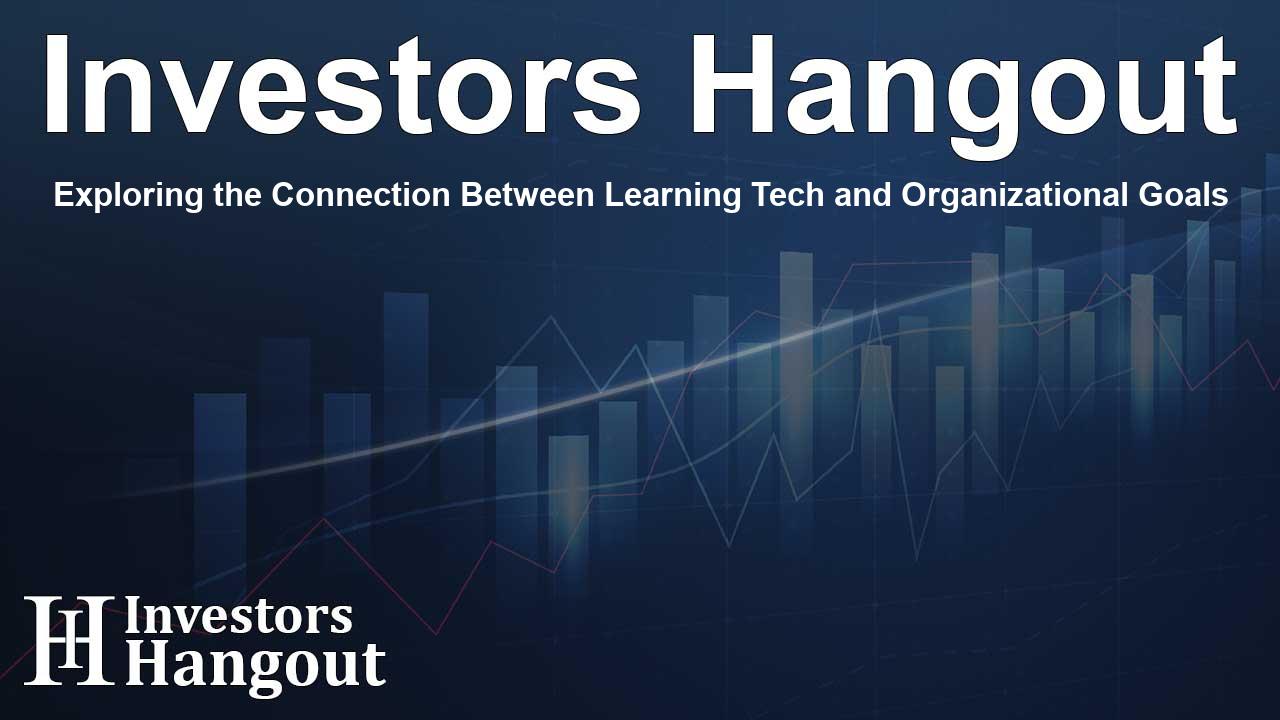Exploring the Connection Between Learning Tech and Organizational Goals

Aligning Learning Technologies with Organizational Objectives
New findings indicate that many organizations have made strides in syncing the launch of learning technologies with both their educational initiatives and business goals. This is a significant revelation from recent research conducted by the Association for Talent Development.
Essential Skills for Talent Development Professionals
To effectively select and manage the implementation of learning technologies, TD professionals should possess a variety of crucial skills. According to the latest research, these skills encompass conducting thorough organizational needs assessments, defining essential functional requirements for learning technology projects, and selecting the appropriate tools and platforms necessary for creating and delivering educational content.
The Role of User Experience
Survey results reveal that when choosing new learning technologies, the user experience plays a pivotal role. Ease of integration with existing systems is another critical factor that TD professionals prioritize. This careful consideration helps facilitate smoother transitions into using new technologies within organizations.
The Shift in Talent Development Responsibilities
Historically, the task of selecting learning technologies fell largely to IT and HR departments. Johann Laville, the Chief Learning Officer at Merck, highlighted this shift in roles by stating that as TD professionals, the selection of learning technology should prioritize the best interests of the organization and its workforce. By not evolving with the necessary skills in technology selection, talented professionals risk allowing others to decide what tools and programs will be used.
Key Insights from the Research
The report reveals several important findings that shed light on modern practices in talent development:
- Many organizations are only beginning to explore artificial intelligence-enabled learning technologies, while some already plan to implement AI for content creation.
- Approximately 60% of TD professionals feel confident in conducting needs assessments for new technologies; however, nearly half report challenges in executing these assessments effectively.
- Remarkably, two-thirds of professionals express proficiency in defining the functional requirements of new learning technologies, which is crucial for maintaining the scope of learning projects.
Survey Insights and Methodology
The ATD conducted a survey involving 362 talent development professionals from various industries to uncover their methods for identifying and selecting learning technologies. These insights provide a clearer view of the skills required in conducting needs assessments and defining functional specifications for learning projects.
Upcoming Events and Opportunities for Learning
To further engage with these findings, ATD invites professionals to join an upcoming free webinar discussing the implications of this research. Scheduled for a convenient afternoon slot, the webinar aims to enhance understanding and application of the reported insights in real-world scenarios.
Read About the Association for Talent Development
The Association for Talent Development (ATD), which has been at the forefront of fostering talent development since 1943, continues to lead the way for professionals aiming to improve workplace performance. Whether in public or private sectors, ATD's vast network of members and chapters emphasizes the critical importance of empowering individuals to strengthen their skills and knowledge.
With over 100 countries represented, the association supports local and international exchanges among talent development professionals, providing invaluable resources and networking opportunities.
Frequently Asked Questions
What does the recent ATD research focus on?
The ATD research emphasizes how talent development professionals can align learning technologies with organizational goals and the required skills for achieving this.
Why is user experience important in learning technology?
User experience is crucial because it affects how effectively the learning technologies can be utilized within the organization, facilitating smoother adoption and integration.
How do talent development professionals feel about conducting needs assessments?
While many TD professionals are skilled in conducting needs assessments, some experience challenges in executing these evaluations effectively.
What are some common technologies used in learning?
Commonly used technologies include learning management systems, e-learning authoring tools, and various assessment tools.
What is the significance of the upcoming ATD webinar?
The webinar serves as a platform to discuss the findings from the research, providing attendees with deeper insights into the practical implications for talent development.
About The Author
Contact Evelyn Baker privately here. Or send an email with ATTN: Evelyn Baker as the subject to contact@investorshangout.com.
About Investors Hangout
Investors Hangout is a leading online stock forum for financial discussion and learning, offering a wide range of free tools and resources. It draws in traders of all levels, who exchange market knowledge, investigate trading tactics, and keep an eye on industry developments in real time. Featuring financial articles, stock message boards, quotes, charts, company profiles, and live news updates. Through cooperative learning and a wealth of informational resources, it helps users from novices creating their first portfolios to experts honing their techniques. Join Investors Hangout today: https://investorshangout.com/
The content of this article is based on factual, publicly available information and does not represent legal, financial, or investment advice. Investors Hangout does not offer financial advice, and the author is not a licensed financial advisor. Consult a qualified advisor before making any financial or investment decisions based on this article. This article should not be considered advice to purchase, sell, or hold any securities or other investments. If any of the material provided here is inaccurate, please contact us for corrections.
